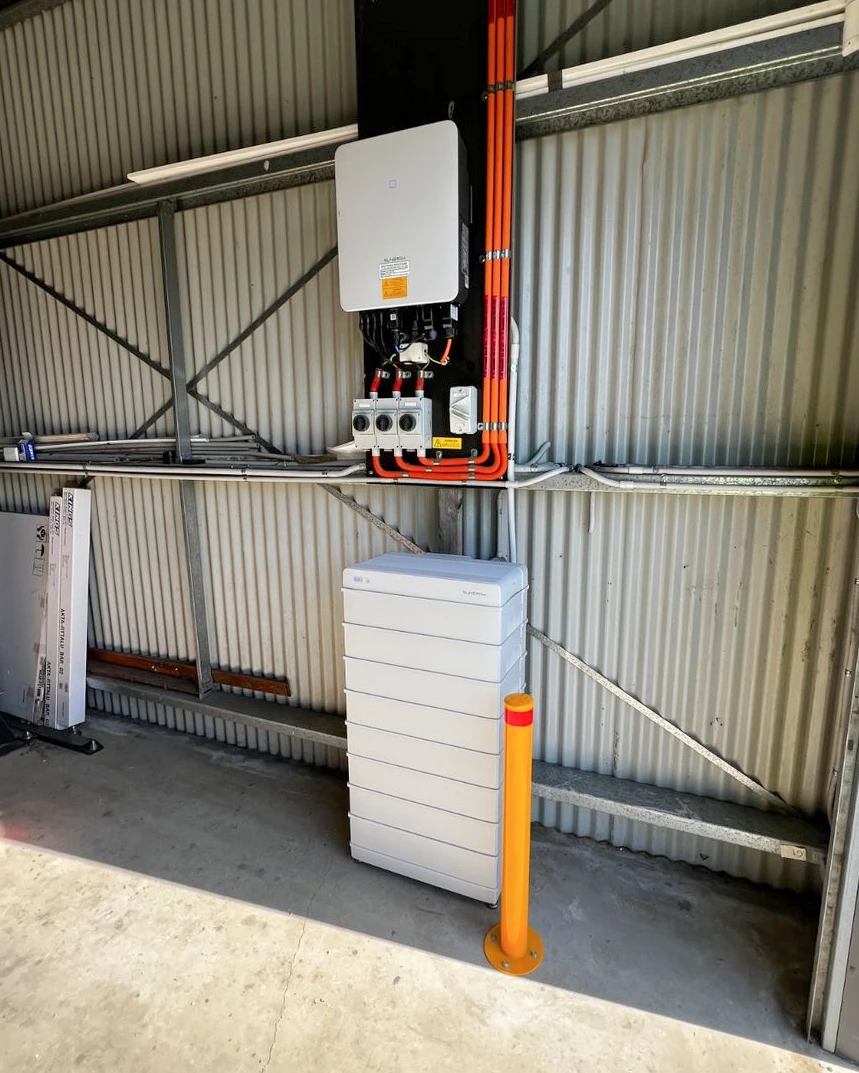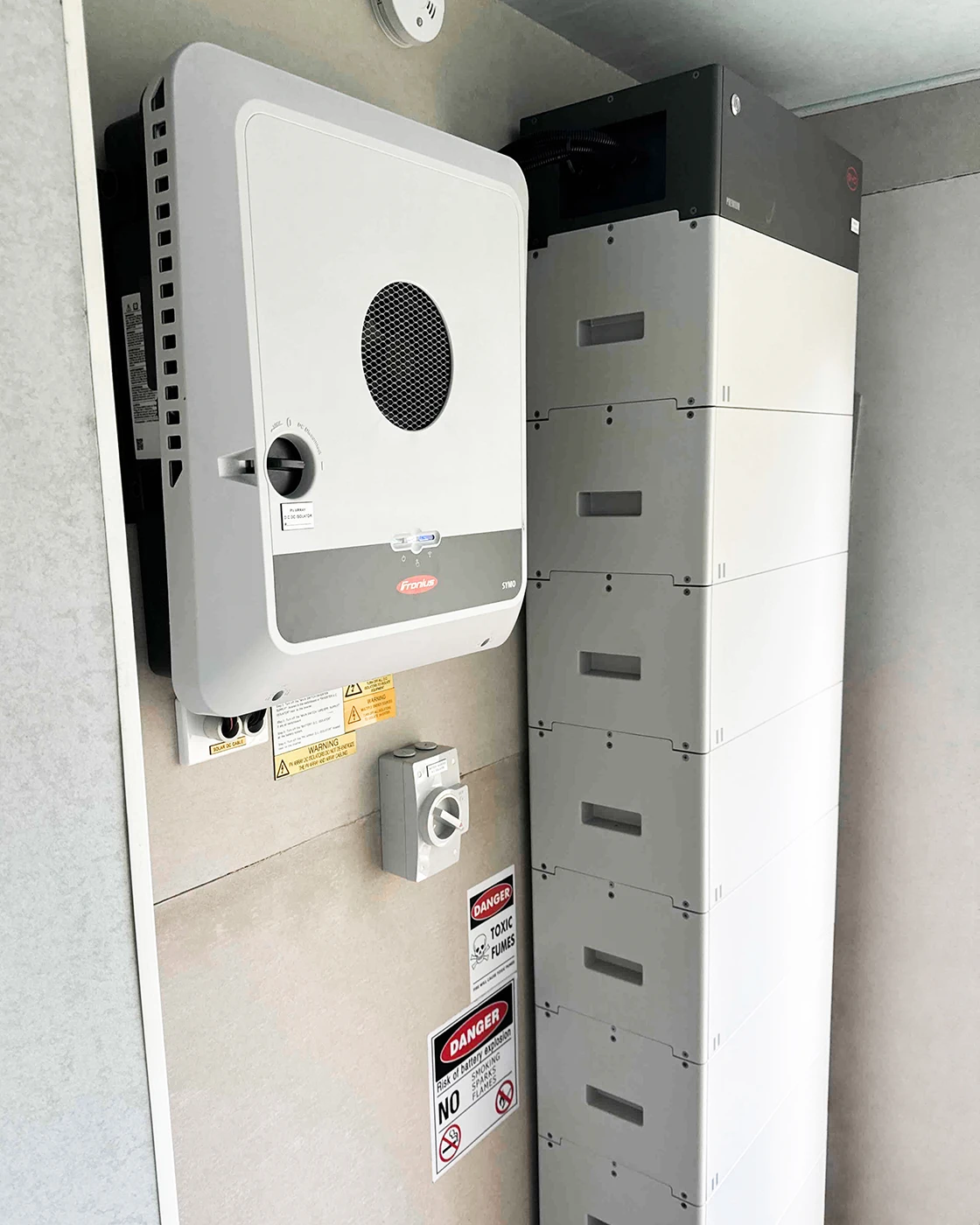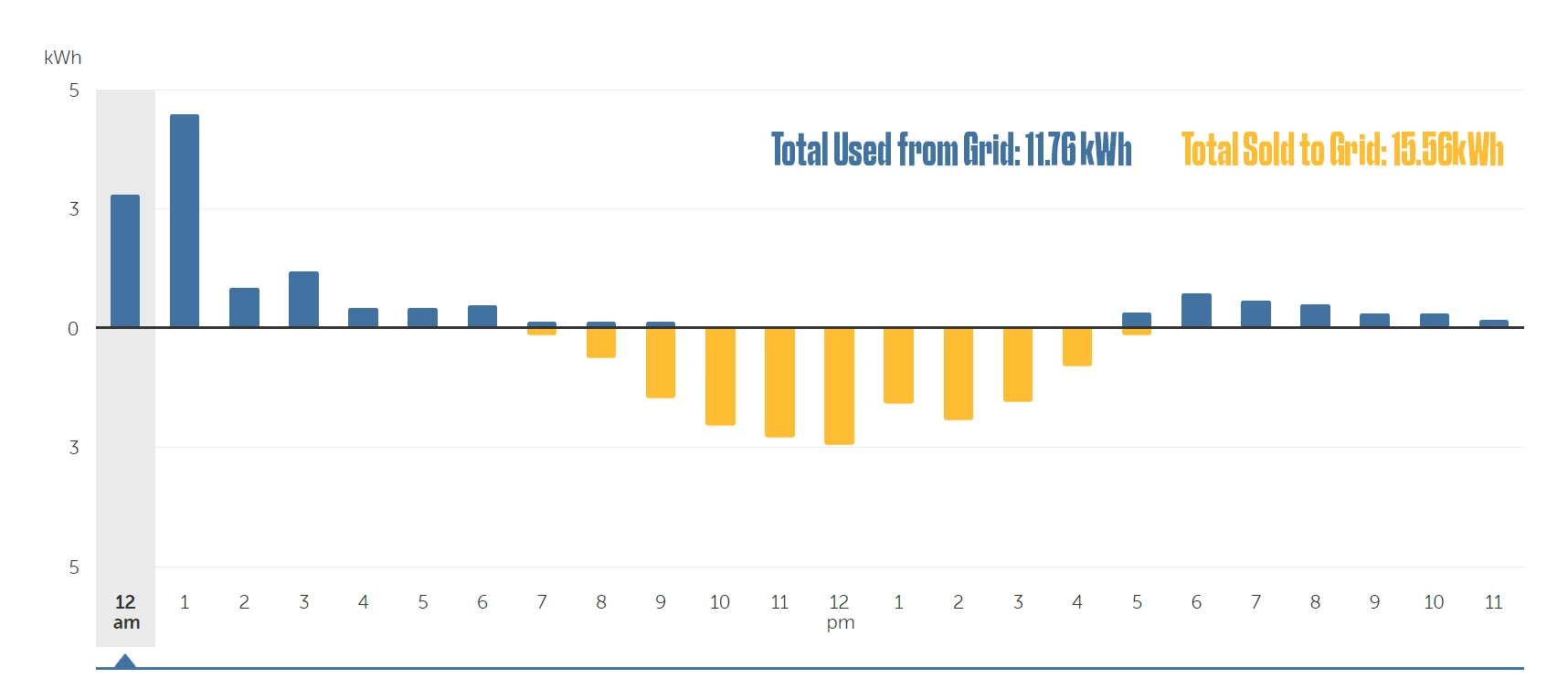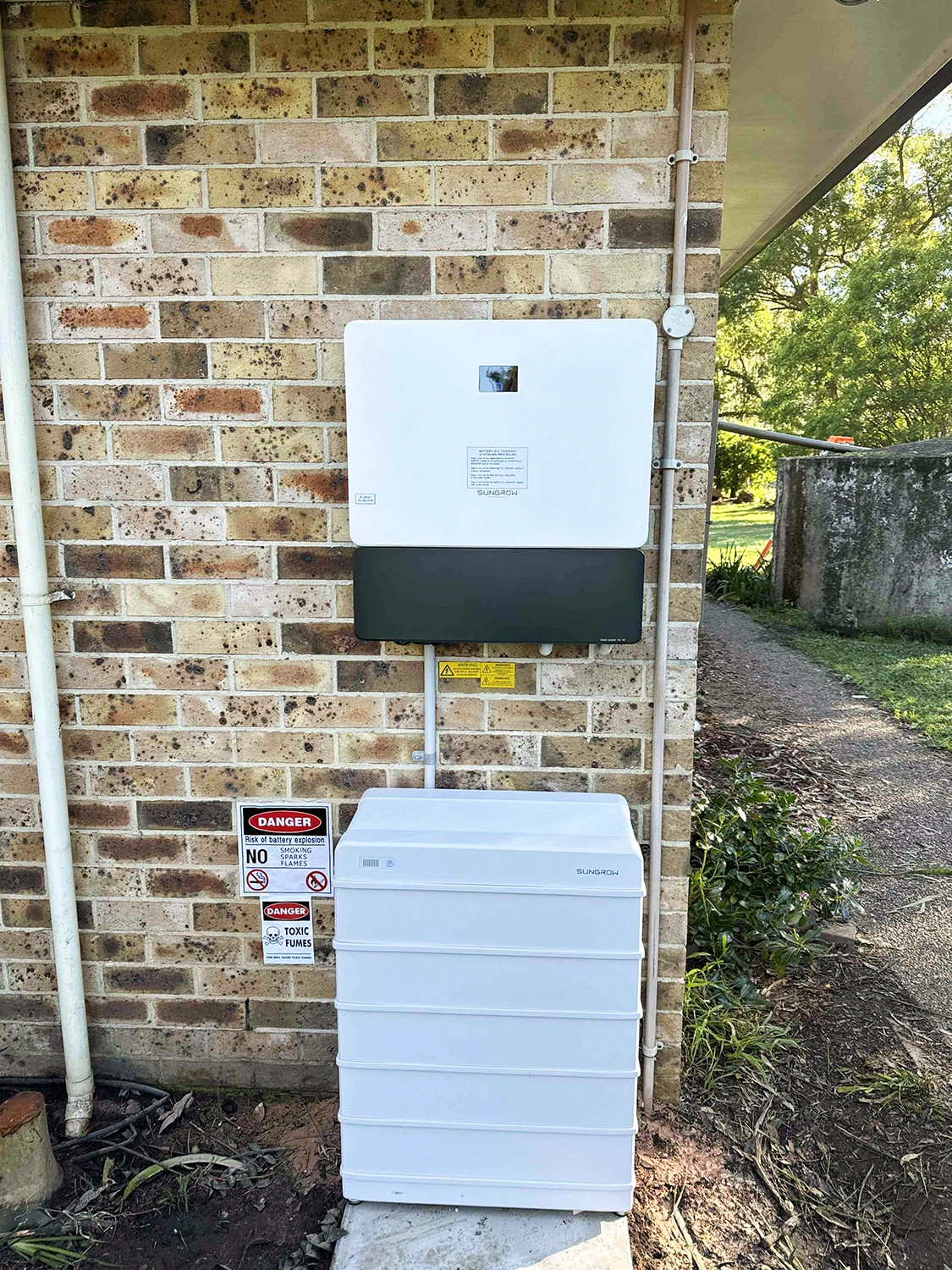2025 Solar & Battery Storage Reach Milestone⚡Statistics Australia
Explore how Australia’s Q4 2025 solar and battery data highlights a major milestone: majority renewable contribution to daytime electricity demand.
Read more
Take Advantage of the Federal Battery Rebate & Maximise Your Savings Today
Posted 2 Sep
Want the latest in energy, solar, and savings?Subscribe to our newsletter – we don’t spam!
For those researching options in the battery storage realm, it can be hard knowing what the right size and best battery is for you and your property, with numerous battery options, variants, solutions, and installers to choose from.
As more current and potential solar owners look at possible solar battery investments, it is important to know the basics in how battery sizes are determined to best match your requirements and budget with an optimal brand, size, type, and cost.
Choosing the right solar battery is determined by elements like your consumption habits, lifestyle, solar system size, your energy goals, and additional requirements.
Consumption habits: Understanding how much energy you use and when you use it is vital in finding the right energy capacity to best help offset grid usage.
Lifestyle: If you're home most days, solar will generally outshine (pun intended) your consumption, and battery storage later in the evening using stored solar.
Solar Size: Comparing production and consumption will identify where more energy is needed. If your solar system is not big enough for excess energy, more solar may be a priority. If your system is producing a lot of excess, a large battery will help maximise it for later consumption.
Energy goals: Every house will vary in energy goals, whether you're purely installing a battery to save on your electricity bill, increase sustainability, or turn your battery into something that earns you money.


Finding the right battery will depend on elements like whether your home is single or three-phase, if the battery will be AC or DC-coupled, and your other unique requirements.
Below are some rough battery sizes for different amount of people in each household to give a general idea of consumption habits and possible energy capacities to match them.
13-15kWh battery storage is deal for 2-3 person homes using 13-17kWh per day.
15-20kWh storage is best suited for 3-4 person households that use between 18-24kWh.
20kWh+ batteries are recommended for homes with larger usage like EV charging & air-con.
Each kWh capacity
range is indicative of average daily electricity consumption in Newcastle & Maitland. Choosing the right solar battery for your
property will also depend on additional elements like if you have an electric vehicle to charge, how frequently you use
air-conditioning, and other high consuming appliances or lifestyles.

Tip: If your consumption is mainly during peak periods and battery storage just isn’t an option for you, consider looking into flat rate tariffs.
Each household will have different production and consumption amounts. For example, my one-person household consumes around 8-9kWh of energy per day on average, and my small solar system producing around 13kWh of energy per day.
Even on a ‘high usage’ day, I consumed 13.9kWh of energy, but my solar system produced 14.4kWh. Looking at the chart below, almost all of that 14.4kWh was fed back into the grid for little return, which could have been better used to offset my consumption later.
In this situation, I would be benefited from installing a battery as the large majority of my electricity consumption is when the sun is down and solar isn’t producing. If your usage looks the same as this chart, it may be an indication to consider getting a battery too.
Whilst feeding solar energy back into the grid can still earn you credit on your bill, but there are other options that far outweigh the return rate.
In situations where you get a battery, you could store the excess solar energy that would otherwise be sold back into the grid for cheap. Using this stored energy instead of using peak electricity prices for those on a time-of-use tariff, can help Australian properties reduce their electricity bill by avoiding high energy prices.
With an average consumption of around 8-9kWh daily, a 10kWh battery would ensure that I consume most, if not all my excess generated solar energy.
Battery storage is a great way to further reduce energy bills and push your home to greater energy independence.


Households in Australia will vary in their consumption and production, so there generally isn’t a ‘one-size fits all’ in terms of battery storage capacity.
By analysing your usage habits, you can gain insight into both your energy capacity and power output requirements. This can help you understand the right battery features you need for your lifestyle.
If you were interested in joining Amber and selling excess energy capacity to the wholesale energy market during peak periods for rewards, this will also increase the required capacity.
Note: if you install an expandable system like Sungrow or BYD, you can add modules to increase capacity in the future.
Identifying your energy goals can be a great indicator of finding the best battery storage, capacity, and brand that will best achieve
your goals, which can vary from general cost saving goals, to specifically consuming stored solar energy in the evenings to avoid peak
period prices, or it may be for complete energy backup when the grid fails.
If one of your goals is to install a future-proof energy storage system, then there are a few aspects to consider. Firstly and most obviously, investing in a quality battery system will mean the difference between a short and long-lasting solution.
Secondly, investing in an expandable system will allow you to add modules and expand energy storage capacity in the future. Having a modular system can provide flexibility when your goal trajectory changes.
Your primary goal may be just to reduce the costs of your energy bill. Whilst there are a few ways of achieving this, the simplest way to save is to use your solar energy as the main energy source and use the grid as a backup. This is called a microgrid.
The other method is joining Amber SmartShift to automatically trade on the wholesale energy market to earn up to $19/kWh during price spikes. This accelerates the payback period of your battery investment.
Lastly, investing in battery storage gives homes in Australia greater energy independence. This method of maximising your solar energy allows you to store and consume the energy YOU generate 24/7.
By having free energy stored for when you most need it, you are less vulnerable to fluctuating peak electricity prices. No more generators or playing board games in the dark.
By producing, storing, and consuming your own power, you stay in control of costs
Below are 3 ranges that apply to most homes with cost-effective ranges from 13kWh to larger 40kWh energy
storage options for increased electricity consumption. Explore what battery options are available for each capacity range.
For most homes, a 13-15kWh battery will hit the sweet spot in helping offset daily energy consumption.
Battery storage options in the 13kWh range consist of:
Balancing reliable backup energy and daily electricity savings, a 16-20kWh battery enables benefits.
Battery storage in the 16kWh range include:
For those wanting extra juice to take advantage of in their battery storage, the 20kWh+ range may be suitable.
20-40kWh battery storage options consist of:
Whilst most homes and businesses in NSW can greatly benefit from battery storage, there are situations where a battery investment actually doesn’t
make any sense.
We get a few customers that get in contact with us about getting a battery, but after reviewing their energy usage and situation, a
battery would not help them save or achieve their energy goals. Sometimes people just need more solar instead!
High-Consumption Appliances
Items like air conditioning and pool pumps are high consumption appliances that contribute to your energy costs.
If these run throughout the day and your solar system generates excess solar energy, a battery may not be required.
Energy Bill is Already Pretty Low
If your energy bill is already naturally low, then solar feed-in-tariffs may be enough itself to reduce your bill by a certain amount.
Whilst you could benefit from a battery, without joining Amber it may take a long time to pay itself off.
Dialed-in Consumption Routine
If you consume a large portion of your energy throughout the day, then a solar-only system may be sufficient and reducing what your bill
would otherwise be. You’ll need to make sure your solar can produce enough power to fulfill your energy requirements.
Whilst there are a few variables that determine what the best battery is for you and your home, you can do some prework to understand your goals, consumption habits, lifestyle requirements, and budget. Having these up your sleeve can enable faster quoting and consultation when contacting your local installer.
Overall, choosing the right solar battery for your home is easier than it looks, and at the end of the day, you can always contact your *quality* local solar battery installers who will look at your situation and requirements and tailor a battery system that is designed for you.
Even though there are many variables that can affect the best battery capacity for you and your requirements, these elements should help indicate what range to look for. When you talk to your local installer, don't be afraid to ask questions about the components they choose!
Explore how Australia’s Q4 2025 solar and battery data highlights a major milestone: majority renewable contribution to daytime electricity demand.
How rooftop solar helped NSW avoid blackouts during the 2026 heatwave, reducing grid stress & supporting record electricity demand across Newcastle.
Explore Elite Power Group's solar and battery installation statistics for 2025, and how we performed over this year of operation in Newcastle and Maitland.
Renewable News Articles
We've invested in becoming fully-licenced and qualified installers to ensure Newcastle homes and businesses
get the best systems and installations possible. We want to assist Newcastle's renewable energy revolution with quality systems.
Certified solar system installers near you.
Get CEC-Approved Battery Installations.
Fully-licenced electricians in Newcastle.
Convenient EV charging stations for properties.
Leave a Comment
- What electricity provider are you with? Depending on where you live, definitely check out Amber who allow you to earn and not just save with your battery.
- Is your system working? Solar and battery systems are designed to provide energy independence and reduce your energy bill, so seeing your bill increase is odd. Has your energy consumption increased?
- Compare your production and consumption - you may be using way more energy than your system can produce and store.
Also, on a separate topic, is there a preferred battery chemistry for home systems? LiFP seems to dominate but are flow battery chemistries better suited to home BESS?
Lithium Iron Phosphate (LFP or LiFePO4) is the preferred battery technology for home solar batteries are they are great for optimal value and safety. Flow batteries generally have a larger footprint, are less efficient, and are also more expensive, making LFP the ideal choice for now as it enables broader accessibility for Australians, but this could change in the future!